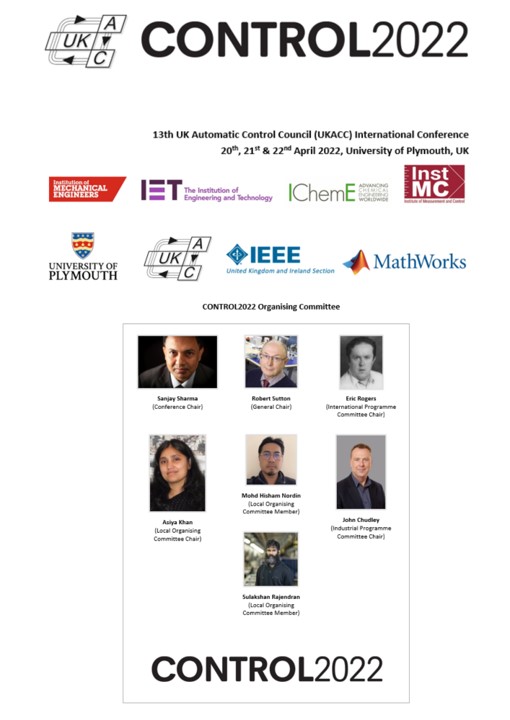Document Type
Conference Proceeding
Abstract
Iterative learning control applies to systems performing the same finite duration task repeatedly. Each execution is known as a trial, and the finite duration of each trial is known as the trial length. A reference trajectory is specified, and then the design can proceed based on minimizing the error sequence with entries formed as the difference between the output on a trial and the reference vector. The starting point for ILC is widely accepted as research in the mid1980s in the robotics area. Since then, ILC has remained an active area of research, starting with the underlying theory and proceeding through design algorithm development and onward to applications. Applications for ILC range across engineering and, more recently, healthcare. This mini-symposium gives an overview of this area, focusing on research conducted by the Southampton group and international partners.
Publication Date
2022-05-18
Event Name
CONTROL 2022: 13th United Kingdom Automatic Control Council (UKACC) International Conference
Location
University of Plymouth, UK
End Date
2022-04-22
Start Date
2022-04-20
Embargo Period
2022-05-18
Deposit Date
2022-05-18
Recommended Citation
Chu, B., & Rogers, E. (2022) 'Iterative Learning Control - Moving from Theory to Applications', Available at: https://doi.org/10.24382/sa3q-xh71


